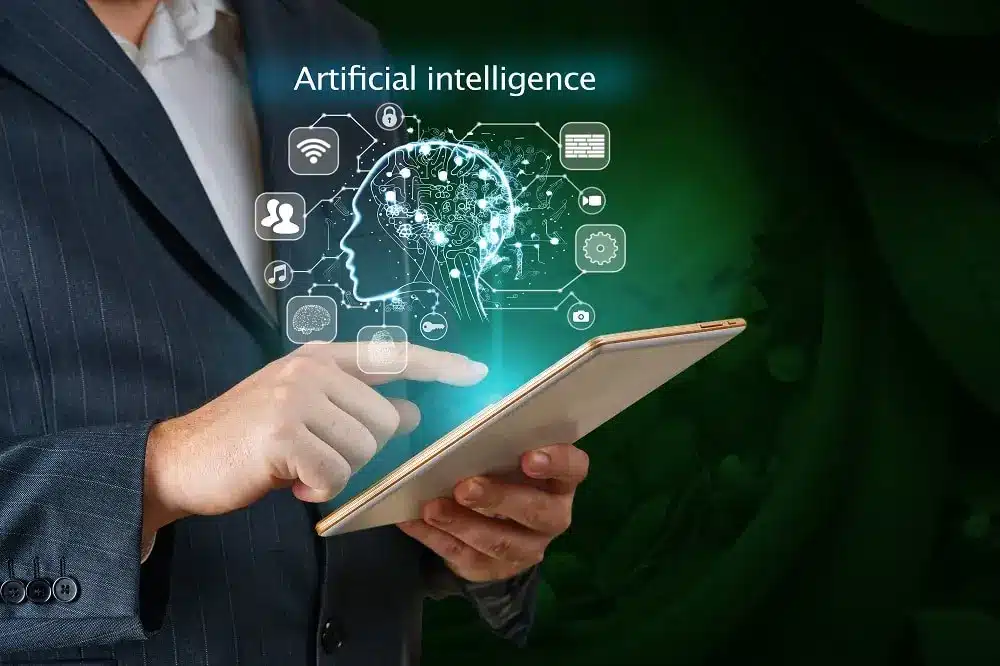From Innovation to Implementation: AI Adoption in Software Development

Artificial Intelligence (AI) has become a game-changer in various industries, including software development. The promises of increased efficiency, improved decision-making, and enhanced user experiences have propelled organizations to embrace AI technologies in software development. However, the journey from AI innovation to successful implementation is not without challenges. In this article, we will explore the hurdles that organizations face when adopting AI in software development and discuss strategies to overcome them.
The Promise of AI in Software Development
AI offers a plethora of benefits to software development. The integration of AI in software development processes can automate repetitive testing methodologies that can enhance software quality assurance by increasing test coverage and efficiency. These promises of AI in software development have sparked excitement and curiosity in the industry, leading organizations to explore AI adoption.
Overcoming Challenges in AI Adoption for Software Development
While the promises of AI in software development are compelling, several challenges must be addressed for successful implementation:
- Data Quality and Availability: AI algorithms heavily rely on data for training and decision-making. Ensuring high-quality data is crucial for accurate and reliable AI systems. Organizations need to curate comprehensive and representative datasets, free from biases, to train AI models effectively. Additionally, they must establish data governance practices to maintain data quality and accessibility.
- Integration Complexities: Integrating AI into existing software development processes can be complex. Legacy systems may not be designed to incorporate AI technologies seamlessly. Organizations should carefully assess their infrastructure and develop integration strategies that minimize disruptions and maximize the value of AI. Collaborating with AI experts and utilizing robust APIs and frameworks can facilitate smooth integration.
- Talent Acquisition and Upskilling: AI implementation requires skilled professionals who possess a deep understanding of both AI and software development. However, the demand for AI talent often exceeds the available supply. Organizations should invest in talent acquisition efforts, such as partnering with educational institutions or offering training programs, to attract and retain AI-savvy developers. Additionally, upskilling existing developers in AI concepts and technologies is crucial to bridge the skills gap.
- Ethical Considerations: AI introduces ethical considerations that organizations must navigate in software development. Issues such as algorithmic biases, privacy risks, and transparency are of paramount concern. Organisations must ensure that AI technologies are created and used responsibly. This involves implementing measures to mitigate biases, ensuring user privacy, and providing transparency in AI-driven decision-making processes.
Will AI Replace Human Developers in Software Development?
The question of whether AI will replace human developers in software development is a complex one. While AI can automate certain aspects of the development process, it is unlikely to completely replace human developers. AI excels at tasks that involve data processing, pattern recognition, and repetitive operations. However, human developers bring a unique set of skills and qualities to the table.
Human developers possess critical thinking abilities, creativity, and domain expertise that AI systems currently lack. They understand the intricacies of software development, can apply contextual knowledge, and adapt to changing requirements. Human developers excel in problem-solving, system design, and collaboration. Moreover, human developers drive innovation and provide the human touch necessary for creating user-centric software solutions.
In the future, AI will continue to augment the capabilities of human developers, enabling them to focus on higher-level tasks, such as architectural design, user experience, and complex problem-solving. The collaboration between AI and human developers will be essential to harness the full potential of AI in software development.
Custom AI Software Development Solution For Enterprises
Conclusion
AI adoption in software development holds great promise for increased efficiency, improved decision-making, and enhanced user experiences. Organizations must overcome challenges related to data quality, integration complexities, talent acquisition, and ethical considerations to successfully adopt AI in software development processes. However, despite AI’s capabilities, human developers will remain indispensable.
The unique skills and qualities that human developers bring, such as creativity, critical thinking, and domain expertise, cannot be replicated by AI. The collaboration between AI and human developers will drive innovation, enable contextual understanding, and ensure the delivery of high-quality software solutions.
AI is a powerful tool that enhances software development, but it will not replace human developers. The future of software development lies in the symbiotic relationship between AI and human expertise, where AI augments human capabilities, enabling developers to create innovative and impactful software solutions that shape the world we live in.









